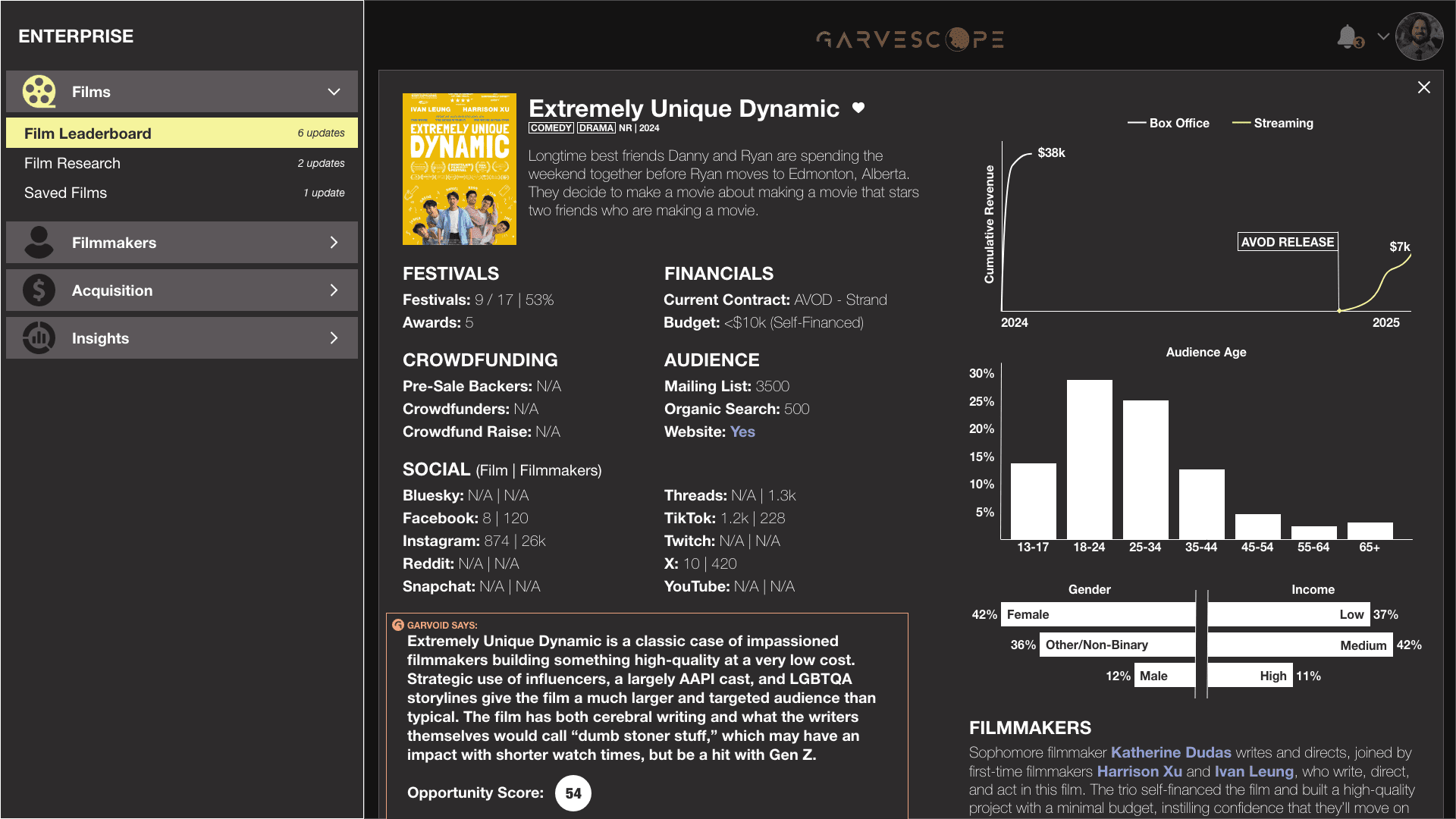Tag: Film Business
-

We’re Fixing Indie Film With Code, Data, and Sass (and SaaS)
Independent film is broken. Not creatively or artistically, but structurally. The stories are as strong as ever. The talent pool is massive. The hunger is real. Yet filmmakers are stuck in an outdated system—one that offers little transparency, fewer resources, and even fewer paths to sustainable careers. Here’s the truth: if you want to build
-

What I Wish I Knew Before Releasing My Indie Film
Distribution is where most indie filmmakers go to die—or at least to disappear quietly. After the blood, sweat, and credit card debt of production, it’s easy to think your job is done. But distribution is not dessert. It’s not a celebration. It’s the war after the war, and most of us walk into it completely
-

If You Don’t Budget for a Lawyer, Budget for Regret
You wouldn’t roll camera without a cinematographer. You wouldn’t record sound without a boom op. So why are so many filmmakers trying to launch careers without a lawyer? Let’s be blunt: if you don’t budget for legal help, you’re budgeting for regret. From rights agreements to release forms to distribution contracts, the film industry is
-

Red Flags That Make Film Investors Walk Away
Investors don’t just back stories, they back systems. And when evaluating early-stage indie film projects, they’re looking for red flags that signal risk, inexperience, or a lack of strategic planning. A brilliant screenplay can still get passed over if the business plan is fuzzy, the team is disorganized, or the financial model smells like wishful
-

Building a Micro-Slate and the Low-Risk, High-Strategy Film Investment Model
Investing in a single indie film is a gamble. But building a micro-slate—a portfolio of multiple small-budget films—turns that gamble into a strategy. The math is simple: one hit pays for the rest, and the diversified risk dramatically increases your chances of finding that breakout title. Unlike studio slates, which often require $5–$20 million per
-

The Financial Edge You Get From Using Tax Incentives in Film Investment
Film tax incentives have become a crucial part of modern film investment strategy, influencing where and how films are produced. Governments worldwide offer financial incentives to attract film productions, stimulating local economies while providing significant benefits to investors and producers. These incentives often come in the form of tax credits, rebates, grants, and exemptions that
-

7 Red Flags of a Bad Film Investment Deal
Investing in films can be both exciting and lucrative, but it also carries significant risk. While many films offer strong return potential, others are structured in ways that almost guarantee financial losses for investors. Knowing how to spot a bad deal is essential for protecting your money and making informed investment decisions. From inflated budgets
-

How to Assess an Indie Film’s Profit Potential and Maximize Returns
Investing in an indie film can be both financially rewarding and creatively fulfilling, but it carries significant risk. Unlike traditional investments, film profitability is unpredictable, and many independent films struggle to recoup their budgets. However, with the right approach, investors can make informed decisions that increase their chances of seeing a return. Assessing an indie
-

What Film Investors Need to See in a Winning Pitch
Investing in film can be both financially rewarding and creatively fulfilling, but not all film pitches are worth funding. For investors, the challenge is identifying projects that balance artistic vision with strong financial potential. A compelling film pitch should provide clarity on the project’s marketability, budget efficiency, and the team’s ability to execute. With the







